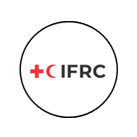The Philippines has been facing adverse reactions around vaccination programs which have led to a decreased number of vaccinated people. In 2018, the Philippines witnessed a measles outbreak with over 18,000 cases reported. ‘Polio was coming back to the county after being eradicated for so long and this was because of the general public’s fears around vaccinations,’ said Paul Drossou, the Netherlands Red Cross Representative in the Philippines. The Philippine Red Cross (PRC) ‘wanted to initially use a tool that would help them gather data for the measles and mumps vaccination campaigns’ said Drossou, ‘this is where the team from 510, the data and digital initiative of the Netherlands Red Cross, suggested the use of the Rumor Tracking Tool.’
‘Rumors and fake news have a well-established influence on vaccine uptake: people get scared or skeptical by reading stories on social media and then refuse to get vaccinated,’ says Jacopo Margutti, Data Scientist at 510. He continues by saying ‘The Philippines Red Cross is one of the main actors promoting and delivering vaccines in-country, and therefore needs to know which rumors circulating on social media require being addressed. Ideally, they need to know which rumors are spreading in which location, at any given moment, so that communication campaign can be as targeted, and effective, as possible.’
Community Engagement and Accountability
‘The Philippine Red Cross wanted to understand the perception of the community on vaccination, to help the Community Engagement and Accountability programs adapt their messages and campaigns based on the ongoing rumors in the communities,’ said Heleen Elenbaas, the GIS and Data Management Project Officer at 510. ‘There was vaccine hesitance in the Philippines and the idea was to build a tool for the measles campaign,’ said Elenbaas when discussing the main need behind this digital tool. ‘After facing a large measles outbreak in 2018, the PRC realized that they needed to start engaging with the members of the community to make sure that correct information about vaccines is circulated,’ she elaborates, ‘this is when the team at 510 suggested building a tool specifically for the measles campaign.’
Rumor Tracking Tool
The Rumor Tracking Tool scans posts on Twitter (tweets) for information on vaccines by using keywords and subsequently classifies them into different topics. The tool was checked by the data responsibility team to ensure that no ethical issues were breached. The output of the tool consists of a summary of rumors and perceptions around vaccines that were shared through Twitter. The results are visualized in real time on a dashboard that shows, among other things, the frequency of the tweets, the dates they were posted, and their location.
With the rolling out of the COVID-19 vaccines in the past months, and ‘not having sufficient data around measles,’ said Elenbaas, ‘we decided to re-design the tool and integrate data around the COVID-19 vaccine.’ When asking Elenbaas about some of the tool’s drawback at the moment, she said ‘it is currently only focusing on Twitter data since the posting on the platform is public.’ When asking Brian Kae Enriquez, COVID-19 response coordinator at the Philippines Red Cross, about the importance of the tool he said that ‘the tool has been of significant value in prioritizing the Risk Communication and Community Engagement at a community level on advising communities as an essential component of a broader health emergency preparedness and response plan on COVID-19.’
Elenbaas also recognized that ‘the users of Twitter in the Philippines are not a representative reflection of the population, and we cannot generalize our findings to the whole country.’ Both Elenbaas and Drossou acknowledged this limitation and later mentioned that 510 and the Philippine Red Cross are ‘working out on ways to add and integrate other social medial platforms, such as Facebook.’
Next steps
‘Rumor tracking through Twitter acts as a community engagement tool, and the geo-tracking function is the coolest part of it’ said Drossou when talking more about his views on the rumor tracking tool, ‘it is easy to harvest the general population’s perception in a country, but making it geo-specific and tailoring your content is taking it to another level.’ Drossou then elaborated on the enthusiasm of the Philippine Red Cross by saying ‘the National Society is more than ready to integrate the tool; they are very data-savvy.’ The excitement of the National Society was also expressed by Elenbaas, as she added by saying that ‘other National Societies are also developing an interest in this tool especially with the rollout of the COVID-19 vaccinations; it has the potential to expand and adapt to other contexts.’ Sharing knowledge in data and digital tools, within the Red Cross and Red Crescent Societies, is aiding in collectively working towards a common goal; efficiently responding to the needs of the communities. The rumor tracking tool, is a great example of responding directly to a specific need, as voiced by Elenbaas, when sharing some final thoughts on the digital product ‘the tangibility of the tool acts as a great example of how you can translate innovative solutions from data into concrete actions.’

